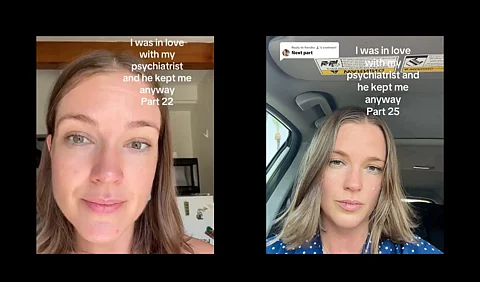The backlash has extended beyond online harassment, with users attempting to dox Hilty and identify the professionals involved (she accidentally revealed her psychiatrist's first name in a deleted video but declined to confirm if he's been found).
This has impacted her personal life, as she noted people "pulling away because they feel afraid" of the threats spilling over." People are getting violent and trying to dox me," Hilty said. The controversy escalated as some viewers questioned the authenticity of her story, speculating it might be "engagement bait" designed to attract attention, though Hilty maintains her account is genuine and reflects her lived experience.


